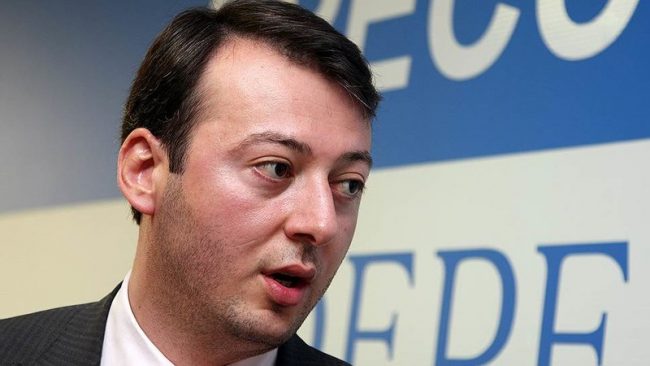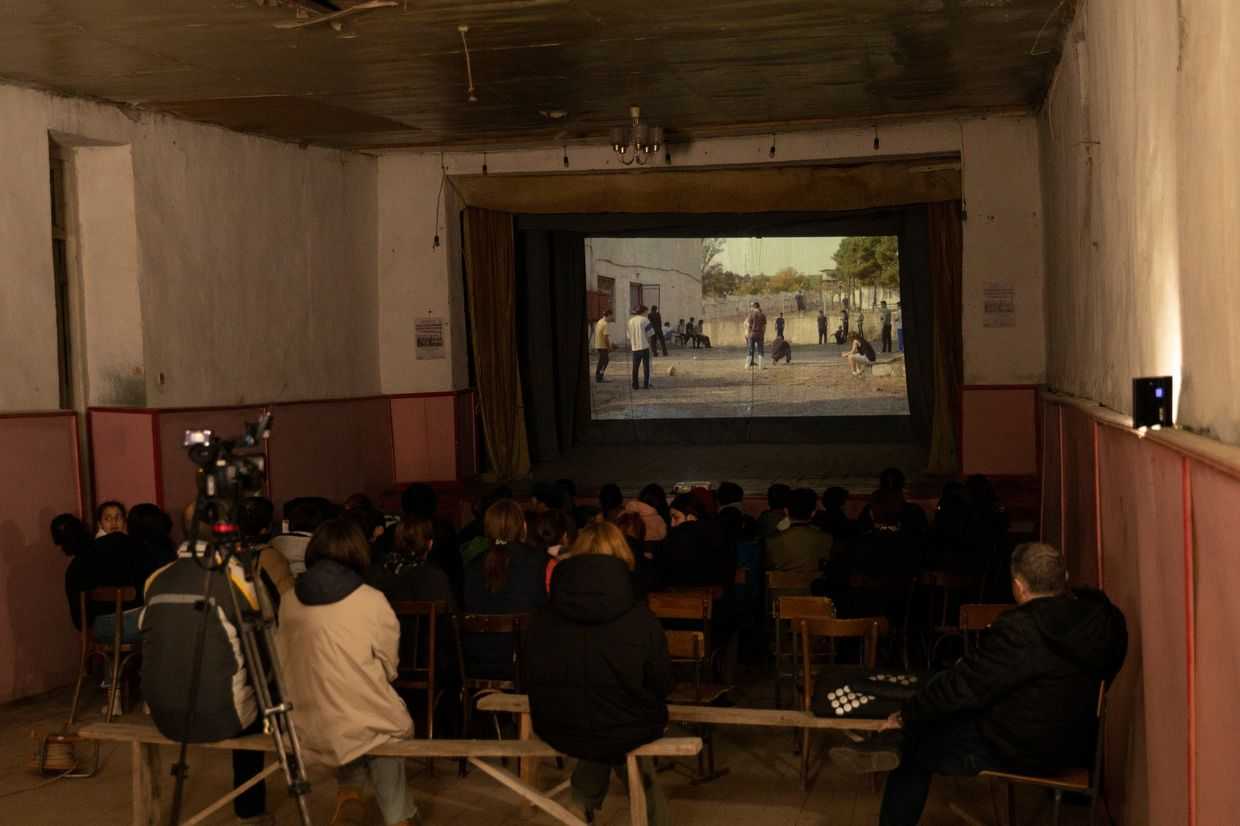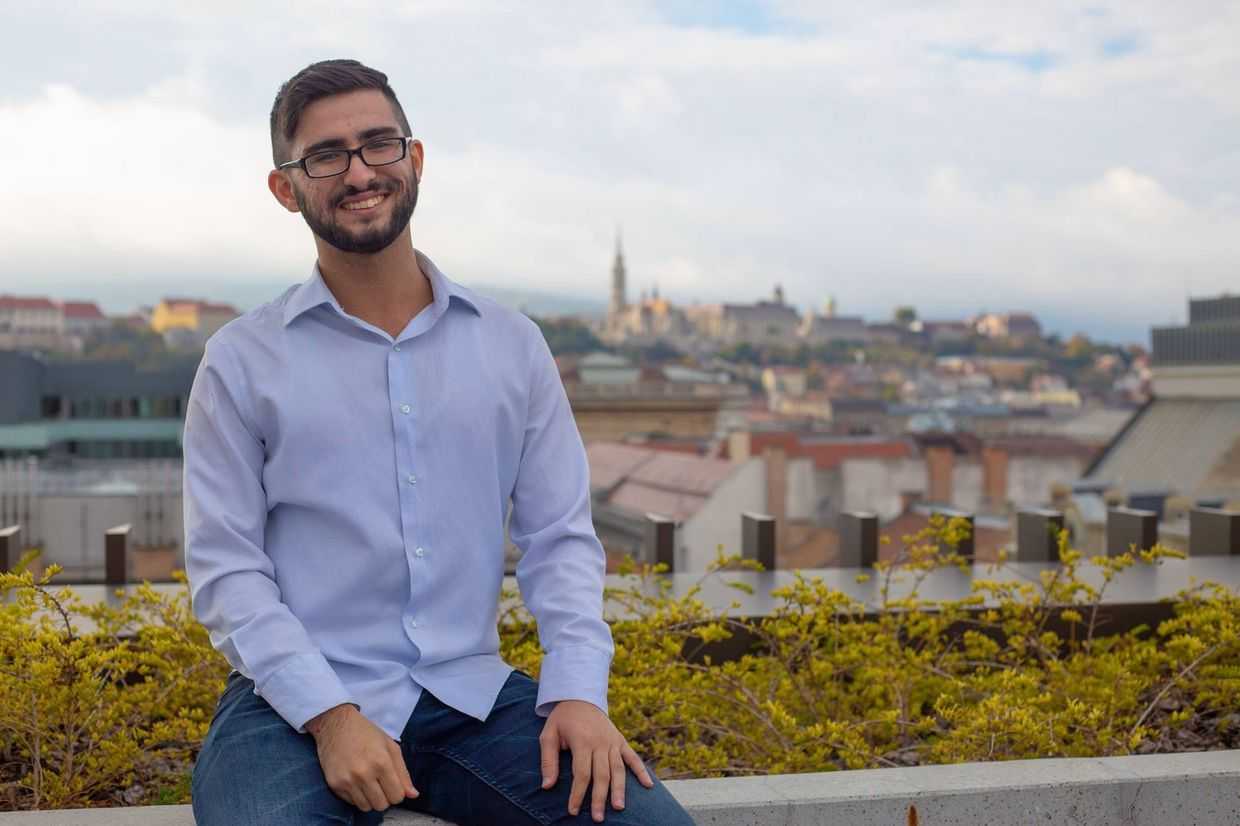

 Magomed Khazbiyev, a well-known Ingush opposition figure and public activist, has been in a detention facility in the town of Karabulak since 11 January. He is being accused of illegal possession of weapons. He claims that the charges have been fabricated. His lawyers insist upon his release. Khazbiyev suffers from ulcers and skin disease. A suspect under investigation with such diseases should be released for treatment.
Magomed Khazbiyev, a well-known Ingush opposition figure and public activist, has been in a detention facility in the town of Karabulak since 11 January. He is being accused of illegal possession of weapons. He claims that the charges have been fabricated. His lawyers insist upon his release. Khazbiyev suffers from ulcers and skin disease. A suspect under investigation with such diseases should be released for treatment.
For three years, Magomed Khazbiyev lived under state protection in Chechnya, where he had moved after an assassination attempt in 2015. Despite this, on February 1, 2018, Khazbiyev was shot again, this time near a hospital in the Chechen capital of Grozny. However, at the beginning of that year, Magomed, as an opposition figure, was offered and refused state protection, and expressed his intention to return home. Now, that Magomed has fulfilled his intention, he has been detained.
Khazbiyev is a consistent critic and an active opponent of Ingushetia’s Head, Yevkurov, as well as his predecessor, Zyazikov. From the middle of the 2000s up to the present, Khazbiyev has been tireless in denouncing corruption and nepotism in local government, and he is also talking aloud about kidnappings, disappearances of the residents of the republic, extrajudicial executions, and dozens of ‘extremism’ cases fabricated to allow for the persecution of citizens of Ingushetia.
Magomed’s long-standing uneasy relations with regional authorities have lead to constant troubles for the prominent critic. The basest methods are used against him. The local authorities have come up with a long list of ways to harass Magomed: criminal prosecution, detentions, interrogations of his elderly father and his brothers, visits by law enforcement officers who searched his parents’ house in Nazran, the beating of his relatives, home invasions by men in masks with machine guns, and the intimidation of his relatives, including small children.
Magomed himself was taken to the police station in the boot of a car, detained, charged under a ‘popular’ law regarding the ‘illegal carrying of weapons’, and was driven out of Ingushetia and the Russian Federation, with a view to only one thing: to stop him being a nuisance for the local authorities.
Opposition figures kept dying
Sometimes, they managed to get rid of Khazbiyev. In 2009, after the murder of a like-minded comrade, the prominent Ingush businessman Maksharip Aushev, Magomed left Russia and spent several months in Europe. However, a longing for the homeland has taken its toll on him, despite the danger of reprisal. He returned, and the confrontation continued.
In the republic, opposition figures kept dying. In February 2013, law enforcement officers came to the house of Sultan-Girey Khashagulgov, a former deputy minister, and a member of the opposition organisation Mekhk-Qel. This was supposedly a routine search, during a pre-dawn haze, with a whole squad of special forces. Sultan-Girey was killed, allegedly by return fire. He had purportedly shot a member of the special forces first.
The situation itself, and how law enforcement explained it, is reminiscent of the ‘accidental’ murder of Magomed Yevloyev, another Ingush businessman and opposition figure. He was shot in a police car almost immediately after he flew to Ingushetia from Moscow on the same flight with then Head of the republic, Murat Zyazikov. The version presented by the police investigation, he was shot while trying to take possession of a policeman’s weapon.
At the moment, Magomed Khazbiyev is also at the mercy of the security services. He is kept in a cell alone, although the representatives of the Karabulak detention facility insist that he is not in solitary confinement. Magomed went on a hunger strike. As his lawyer Kheda Ibriyeva argues, her client thereby expresses a protest against not only the bad conditions of his detention, but also against unlawful persecution in general.
Detention in spite of illness
On March 13, a regular session of the court took place, during which the question of Khazbiyev’s further stay in custody was going to be decided.
‘We asked for, at the very least, the replacement of detention with house arrest. We were denied. We asked to send Khazbiyev to a medical examination based on certifications of his illness. Again — failure. Meanwhile, the man is seriously ill. He has gastric bleeding, and his blood pressure is rising’, Kheda Ibriyeva says. ‘The next day I came to see him during a visit, but they did not let me in, they used the absence of an employee of the special unit as an excuse, saying no one else can replace him. Thus, Khazbiyev’s right to defense has been violated, and this is not the first time. Once they ruined my ID. I restored it, got a new one. But today there was another pretext.’
Kheda Ibriyeva says she has appealed to the Public Monitoring Commission, and hopes that a close inspection of the detention facility will allow for an improvement in Magomed’s conditions.. Ibriyeva admitted that she has discouraged her defendant from a hunger strike. In her opinion, this step would have a detrimental effect on his health. She also claims that in the detention facility, they would not force feed the opposition figure.
‘Once they called an ambulance over there. At the same time, when relatives asked the doctors about his health, they were told there was “nothing serious”. I believe the doctors are playing along with the prison guards’, the lawyer said.
Grenade and gun under the pillow
Magomed’s brother, Murad Khazbiyev, claimed in a conversation with Dosh that the detention of the opposition figure in solitary confinement is done at the direct instruction of the Head of the republic, Yevkurov.
‘Yevkurov instructed the minister of the Ministry of Internal Affairs to completely isolate Magomed from the outside world, and lock him up for a maximum sentence. This is information from an insider at the agency. The weapons my brother was accused of possessing were planted during a search. Earlier, there was another charge of auto theft’, the brother says.
‘There was a man named Imagozhev, who wrote in a statement that he bought a stolen car from Magomed’, Murad Khazbiyev says. ‘However, it turned out later that Timur Khamkhoyev, former chief of the Center for Combating Extremism, exerted pressure on Imagozhev, and threatened him with torture. Later, Khamkhoev himself, and his deputy Bekov were accused of abuse of power, torture of detainees and extortion. They were imprisoned, and Imagozhev withdrew his application, and swore an affidavit that he was removing the claims. The larceny case was closed. As for Magomed’s charge of weapons possession, the search was conducted by none other than Bekov’, continued Magomed’s brother.
‘Magomedov is dangerous to the authorities’
In January 2018, when Khazbiyev expressed a desire to return to Ingushetia, a grenade flew into the courtyard of his house. People were not injured, but property was damaged. The car was parked in the yard. It was, as he and his relatives believed, an attempt to intimidate him, and not to keep him from returning to the republic.
‘A case was opened after the grenade was thrown, but without any results. Yes, such things have happened so many times! We were fired upon, but they did not find the people who fired, they closed all the cases. And this one will also be closed. On the street they even found a pin from a grenade, but the traces on it did not allow them to identify the one who threw it’, Murad Khazbiyev said. ‘Everyone understands that this is a show, and that Magomed is a political prisoner. This is confirmed by the fact that people from the government of the republic visited the elders of our clan and proposed a deal: if Magomed says that he was wrong in regards to Yevkurov, that his criticisms were groundless, that Yunus-Bek was in fact a good leader, then he will be released. Such conditions have been put to us’.
Magomed Mutsolgov, a human rights activist and leader of the Mashr organisation, believes that Khazbiyev is dangerous to the authorities because of his popularity and his determination to publicise facts uncomfortable to the authorities.
‘He exposes the local authorities, publishes compromising evidence about leaders. If a Japanese official has been dishonored so, he would certainly have committed seppuku. But here, in Ingushetia, this is treated in a very simple way: they decided to imprison Magomed. Why are they not looking for those who throw grenades at the houses of opposition members? After all, this is not the first time. The leadership of the republic has never condemned such crimes. This is very revealing — the silence of the authorities. You’d guess that the FSB would search like a bloodhound on a scent trail to find out who are these people are with hidden boxes full of grenades. Even if these unknown people support the authorities today, what if they suddenly change their mind tomorrow, and the grenades will fly in the houses of officials?’
‘In addition, it should be noted that the security services, who brought a case against Khazbiyev and actively accused him, are now themselves under investigation for very serious crimes. Extortion, torture… Should we trust the conclusions of these criminals and their work on the case of the opposition figure?’
This article is a translation of a partner post written by Leya Gurevich. The original version first appeared in the journal Dosh, issue 01/2018.








